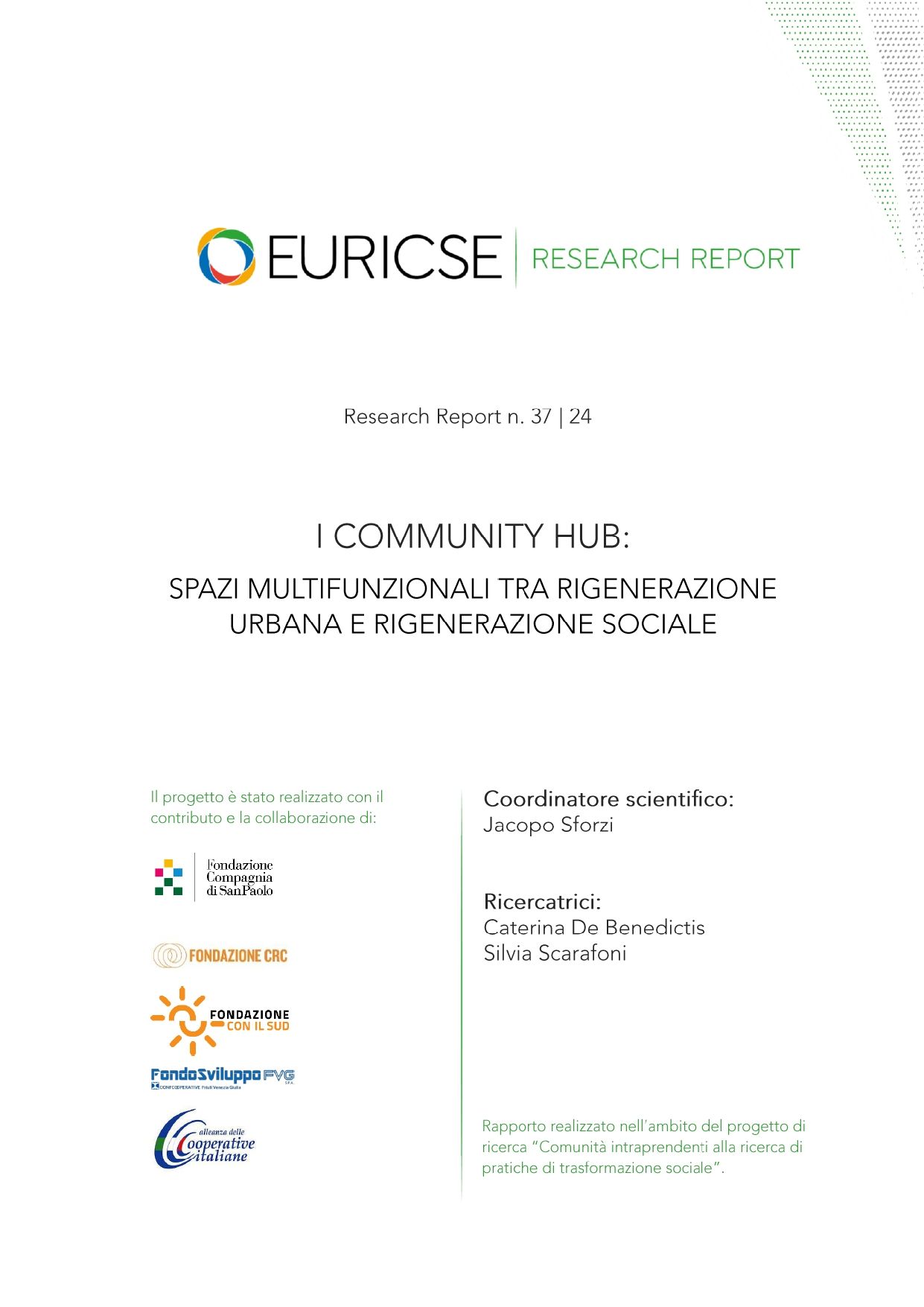Community hubs: multifunctional spaces between urban regeneration and social regeneration
This report focuses on community hubs, multifunctional and multipurpose spaces that host a variety of activities and different social actors. These places, responding to local needs, develop services for the community, promoting its active participation through co-creation and enabling new projects. In Italy, the phenomenon is constantly growing, with a prevalence of experiences born in the North of the country. Although Community hubs share the same objectives, they adopt different strategies according to the needs and interests of their community. The prevailing sectors of activity include coworking, aggregation and sociability, welfare, culture, urban regeneration and education.
There are several sections in the report:
- General information on Community hubs in Italy: definition, geographical distribution and main sectors of activity;
- Presentation of the results of the empirical analysis on governance models, tools adopted to activate community involvement and relations with the surrounding territory;
- Analysis of five case studies: CasciNet, a Community hub managed by a social enterprise located in a farmstead in the peri-urban suburbs of Milan; Cult-Community hub, a reality in Perugia managed through a participatory governance model; MareMemoriaViva, an ecomuseum in Palermo managed through a special public-private partnership; ViviamoLaq, a community hub in L’Aquila that stands out for its spatial dimension (a container from Irpinia in the 1980s); Beeozanam, a multipurpose centre in Turin that combines the experience of a community hub with that of a neighbourhood concierge;
- Conclusions and suggestions for promoting Community hub initiatives as an inclusive model of urban governance.
This work is part of a broader research that aims to understand community activation as a growing phenomenon, identifying its areas of intervention, conditions for development and limitations. The project “Community enterprises. In search of new practices of social transformation”, which spans several years, sees not only the scientific involvement of Euricse, but also the collaboration of Compagnia di San Paolo Foundation, CRC Foundation, Fondazione con il Sud, FondoSviluppo FVG and the Alliance of Italian Cooperatives.

